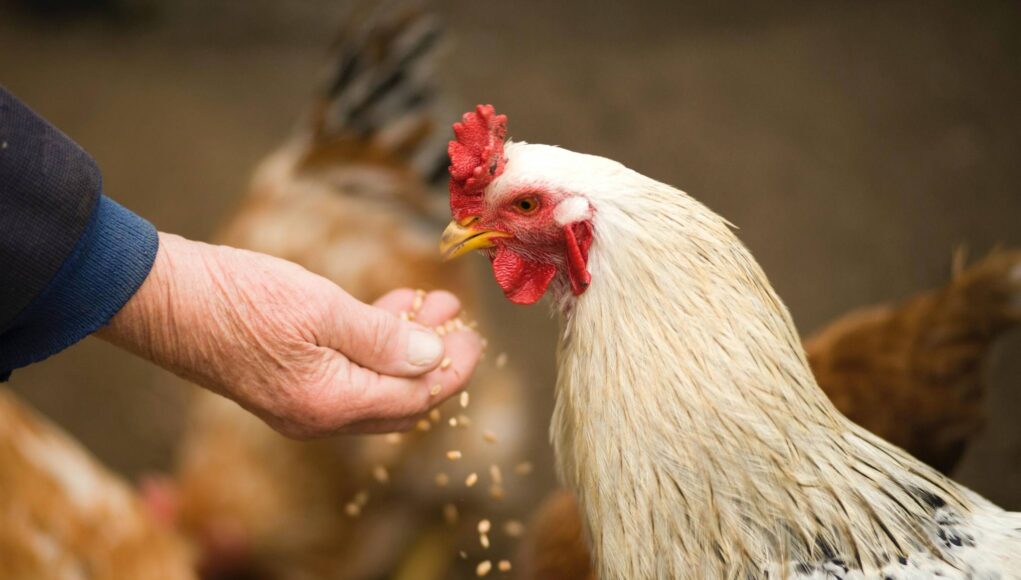
Introduction
The importance of proper nutrition for laying hens cannot be overstated. To ensure a good egg production, chicken feed must include specific ingredients that provide the necessary nutrients. If youve ever wondered **what are five ingredients found in laying chicken feed**, this comprehensive guide is for you.

Why Nutrition Matters
Nutrition is crucial for the health and productivity of laying hens. A balanced diet leads to better egg quality, stronger shells, and overall happier birds. But what exactly goes into the feed to achieve this?

Main Ingredients in Laying Chicken Feed
Grains
Grains such as corn, wheat, and barley form the base of laying chicken feed. They provide essential carbohydrates, which supply energy for daily activities. Additionally, grains are a good source of fiber, aiding in digestion.
Protein Sources
Protein is vital for muscle development and egg production. Common protein sources include soybean meal, fish meal, and alfalfa. These ingredients ensure that the birds receive adequate amino acids needed for healthy growth and egg formation.
Calcium and Minerals
Calcium is crucial for strong eggshells. Sources like limestone or oyster shells are often included in the feed to meet this need. Other important minerals include phosphorus and magnesium, which contribute to bone health and metabolic functions.
Vitamins
Vitamins are vital for overall health and productivity. Vitamin D, for instance, is important for calcium absorption, while Vitamin A supports vision and immune function. Feed formulations include these vitamins to ensure well-rounded nutrition.
Fats
Fats are another essential component, providing a concentrated source of energy. They also aid in the absorption of fat-soluble vitamins like Vitamins A, D, E, and K. Common sources of fat in chicken feed include vegetable oils and animal fats.

Additional Nutritional Components
Amino Acids
Amino acids are the building blocks of protein. Methionine and lysine are particularly important in laying hens diets. These amino acids support growth, feather development, and egg production.
Electrolytes
Electrolytes such as sodium, potassium, and chloride help in maintaining fluid balance and proper muscle function. These are especially important in hot weather when hens can easily become dehydrated.
Feed Formulation Techniques
Creating the perfect feed involves more than just mixing ingredients. Nutritional experts analyze the specific requirements of laying hens and adjust formulations to meet those needs dynamically. This process ensures that all nutrient gaps are filled.
Common Commercial Feeds
There are many commercial feed options available, each with unique blends of these essential ingredients. Some well-known brands include Purina, Scratch and Peck, and Manna Pro. Each brand offers variations tailored to different stages of a hens life.
Homemade vs. Commercial Feed
While commercial feeds are convenient and scientifically formulated, some poultry enthusiasts prefer making their own feed. This allows for control over ingredient quality and customization to specific flock needs.
Ingredients to Avoid
Not all ingredients are beneficial. Avoid feeding hens with excessive salt, chocolate, or avocados, as these can be toxic. Always ensure the feed is free from mold and contaminants.
Storage Tips
Proper storage is essential to maintain feed quality. Store feed in a cool, dry place and use airtight containers to prevent spoilage and contamination.
Seasonal Adjustments
Nutritional needs can vary with seasons. During winter, hens may require more energy-dense feed, while summer may necessitate higher electrolyte content to prevent dehydration.
Observing Your Hens
Monitor your hens to ensure they are thriving on their diet. Signs of deficiency can include poor egg production, weak eggshells, or lethargy. Adjust feed as necessary based on these observations.
Conclusion
Understanding **what are five ingredients found in laying chicken feed** helps ensure that your hens remain healthy, happy, and productive. By providing a balanced diet rich in grains, protein, calcium, vitamins, and fats, you can support their overall well-being and maximize egg production.
FAQs
What is the best grain for laying hens?
Corn is often considered the best grain due to its high energy content, but a mix of grains like wheat and barley can provide a balanced diet.
Can I make my own chicken feed?
Yes, making your own chicken feed allows for customization, but it requires careful formulation to ensure nutritional balance.
What are the signs of nutrient deficiency in hens?
Signs can include poor egg production, weak eggshells, feather loss, and lethargy. Adjusting the feed can often remedy these issues.
For more information on poultry diseases, check out this resource on poultry diseases.
Looking for more on chicken care? Check out our articles on full-size and mini-size chicken breeds, jumbo egg layers, and best tasting chicken breeds.
As an Amazon Associate, I earn from qualifying purchases.









